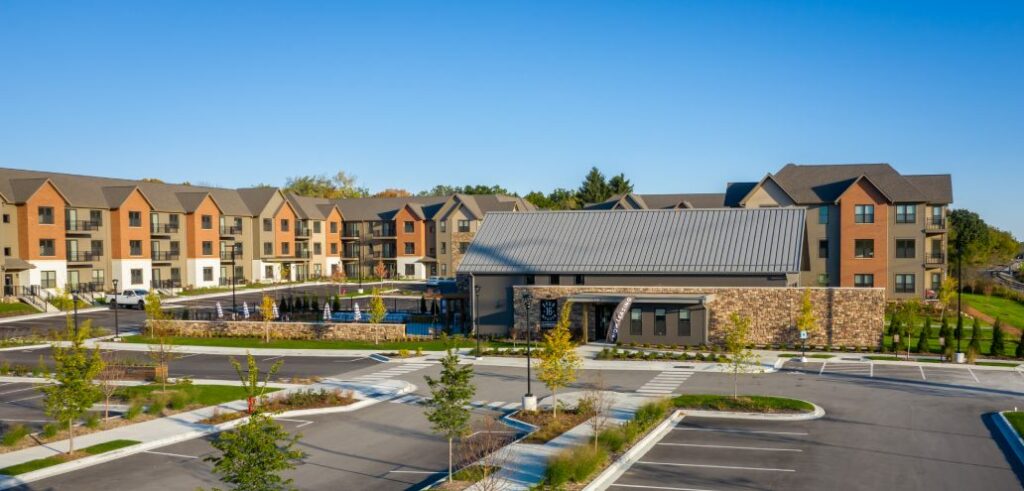The stark and deeply troubling fact is that we are in a housing crisis and face an acute shortage of supply of homes, condos, and apartment rental units.
Thankfully, political leaders at both the federal and provincial levels are coming round to that point of view. Recently, there has been a flurry of actions and proposals aimed at tackling the problem.
The federal Liberals announced that the GST will be removed on construction of new rental apartment buildings, which will lead to a five-per-cent reduction on the cost of goods and services.
Soon after the federal government’s plan was released, Ontario announced it would remove the provincial sales tax from new rental construction as soon as possible.
The province’s eight-per-cent tax, combined with the federal five per cent, forms the harmonized sales tax or HST.
Millions more rental units are needed, and we must pull out all the stops to get them built. The moves proposed by the feds and province are a good start.

The Need for More Rental Units is Critical
We haven’t built enough purpose-built rentals to accommodate our growing population, yet projects were still saddled with whopping sales taxes on the fair market value of a building upon completion.
When encumbered with such formidable financial hurdles, developers have found it difficult to proceed with apartment building projects. The adjustments will shave costs from constructing apartments and lead to more building.
Quick and decisive action is needed as rents have been rising. The average cost for a condo rental in Toronto was $1,866 in 2016 but climbed to $2,786 by June 2023, according to calculations done by John Pasalis, president of Realosophy Realty. Rents are increasing five times faster than before 2016.
The GTA alone needs more than 300,000 new rental homes in the next decade, according to a report done by the Building Industry and Land Development Association, the Federation of Rental-housing Providers of Ontario (FRPO), Urbanation Inc., and Finnegan Marshall Inc.
Legislation Would Get Shovels in the Ground Sooner
Conservative Party leader Pierre Poilievre has also announced he is proposing a Building Homes, Not Bureaucracy Act that would, if passed, give more money to municipalities that are building and meeting housing targets and take funds away from cities and gatekeepers that aren’t hitting goals.
Under the proposal, cities would be required to increase the number of homes built by 15 per cent each year or a percentage of their funding would be withheld. Cities that exceed that figure would get a bonus.
His proposal would remove the GST on the building of any new homes with rental prices below market value. It would also addresses municipal-level barriers and impose a penalty on big city gatekeepers for egregious cases of NIMBYism.
Transit and infrastructure funding would be withheld from cities until sufficient high-density housing is built and occupied around transit stations.
Poilievre is also proposing that, within a year of the legislation being passed, a list would be provided of 15 per cent of the federal government’s 37,000 buildings and all appropriate federal land that could be turned into homes people can afford.
The Conservative proposal would encourage cities to reach their housing targets, speed up the construction of much-needed new condos and homes, and make it easier for developers and builders to get shovels in the ground as soon as possible. Such a situation is a win-win for everyone.

More Steps are Needed
For some time, RESCON has been pushing for steps to be taken as quick and bold action on the housing front is necessary to bring us back from the dark abyss
Developers have been encumbered with formidable financial hurdles, and it has been difficult to proceed with housing and rental projects.
Other challenges, such as inflation, interest rate increases, labour, and material supply shortages, have made it exceedingly difficult for developers to put shovels in the ground on a project.
We are still advocating for programs that eliminate the collection of taxes on profits emanating from residential construction projects where the funds are re-invested into advancing similar projects. Programs like this resulted in tens of thousands of housing units in the 1960s and 1970s.
We’d also like to see a significant increase in transfer payments to municipalities from federal taxes collected from the construction sector to facilitate reduced infrastructure cost pressures on cities and towns that have limited funding tools.
The recent proposals are a step forward. But more action is still needed.
Richard Lyall is president of the Residential Construction Council of Ontario (RESCON). He has represented the building industry in Ontario since 1991. Contact him at media@rescon.com.









